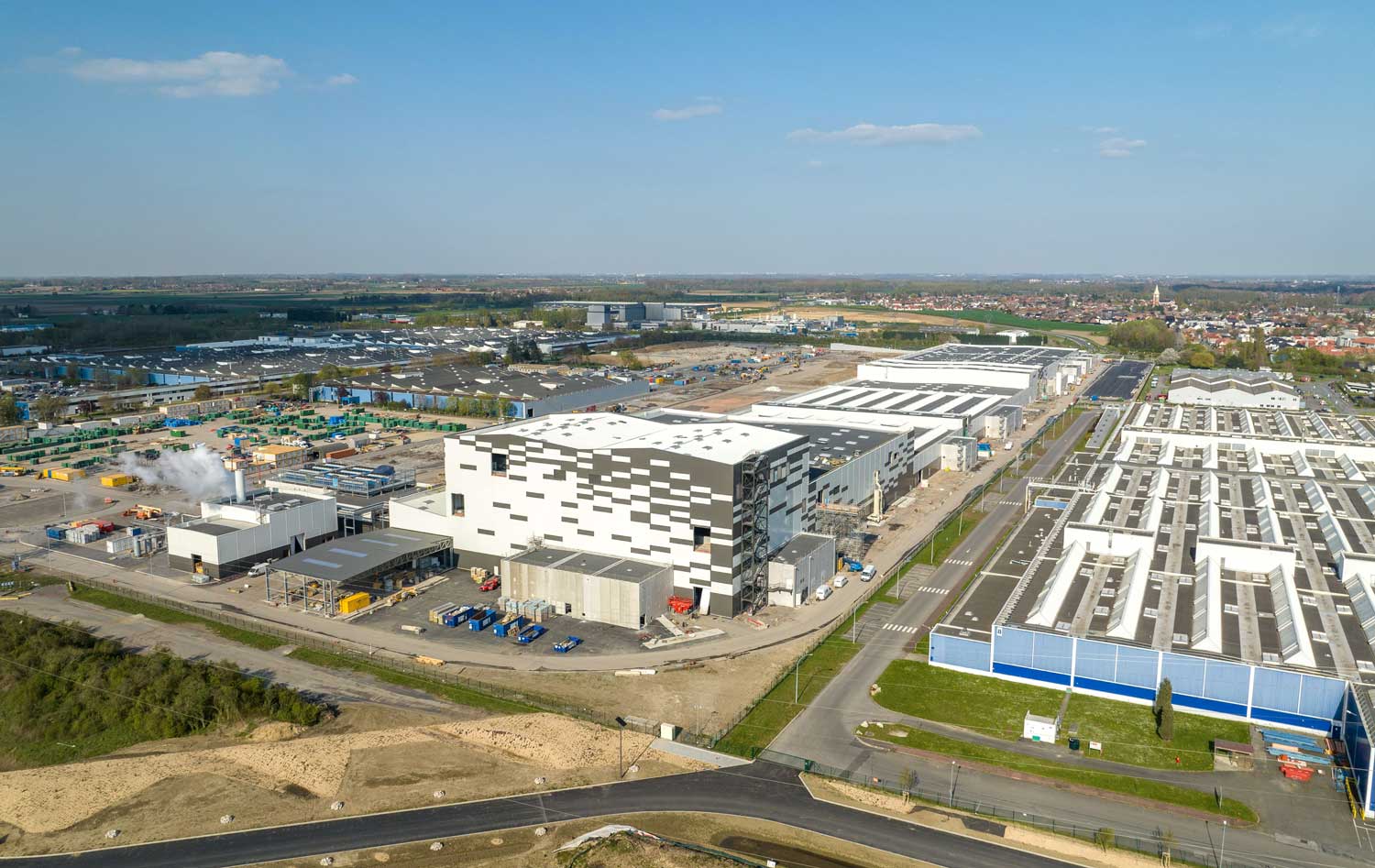The “Battery Valley” is emerging in the Hauts-de-France region as the European showcase of a reindustrialization focused on electromobility.
Around Douvrin/Billy-Berclau, Douai, and Dunkirk, several gigafactories (ACC, AESC-Envision, Verkor), and by 2026, ProLogium, are reshaping the landscape of skilled industrial employment.
Beyond the promises of investment and volume, a strategic challenge remains: attracting, assessing, and retaining industrial technical managers (process engineering, maintenance, quality, HSE, industrialization, supply, operations) capable of handling rapid ramp-ups in a context of scarce skills and managerial strain.
According to Apec, the region was still targeting over 17,000 managerial hires in 2025, 17% of which in industry; yet the market remains tighter than in 2023, and local competition for experienced profiles is expected to be fierce.
An industrial hub shifting in scale… and timeframe
The trend is clear.
ACC launched its first gigafactory in Billy-Berclau/Douvrin at the end of 2023, with ramp-up continuing throughout 2024 and a target of 2,000 jobs by 2030.
In Dunkirk, Verkor built an 80-hectare site in record time, with a first phase announced at 16 GWh and 1,200 jobs, scaling to 50 GWh and 2,000 jobs eventually. Local authorities mention thousands of induced jobs and a restructuring of the value chain (materials, components, services).
Beyond battery cells, the Valley is attracting upstream/downstream components and processes (electrolytes, cathodes, recycling), widening the range of sought-after skills. The regional ecosystem projects 17,000 direct and indirect jobs by 2030, driven by electromobility.
This takeoff does not come without turbulence: some announcements in the recycling sector have been revised (Eramet’s pullback in 2024), reminding us that project selection remains key to the local sustainability of managerial needs.
Recruitment Implication: load peaks and industrial milestones (qualification, ramp-up, tech transfer) require sequenced talent acquisition plans and immediately operational technical managers, capable of navigating between automotive standards, energy/carbon constraints, and multi-site supply chains.
The skills battle: processes, maintenance, electrochemistry… and training “Lead Time”
Studies from the Industry Skills Observatory (OPCO 2i) are clear: the battery sector demands strong expertise in process technologies, maintenance, safety-HSE, quality, and electrochemistry, spanning operators/technicians, engineers, and managerial staff. Cross-functional roles (procurement, logistics, industrialization, data/process control) are also gaining traction.
To reduce the skills gap, the region has structured its training offer: the Électro’Mob program includes more than 11,000 modules to train over 8,000 people by 2030, in partnership with industrial schools/high schools, IUT, IMT Nord Europe, and automotive players. Dedicated centers (Battery Training Center) and accelerated CQP programs support career transitions.
The ecosystem plans to train 1,600 people per year through around 100 programs (from vocational certifications to PhDs), but pedagogical inertia and a lack of specialized trainers limit the pace of adjustment.
Nationally, other regions are investing in battery platforms (e.g., BATTENA in Nouvelle-Aquitaine: 200+ courses, 35,000 people to be trained by 2030), fueling interregional competition for the same managerial profiles.
“The best hires combine process expertise with the ability to transfer and support team upskilling, it’s a multiplier of impact,” says Victoire Duhem.
HR Consequence: the challenge is not just finding a “unicorn.” It’s about orchestrating senior/mid-level pairings, integrating returning expats or “adjacent” profiles (materials chemistry, sterile pharma, power electronics), and anticipating MRO (maintenance & reliability) in line with the 24/7 constraints of gigafactories.
A paradoxical managerial market: macro slowdown, local-specific pressures
Managerial hiring slowed in 2024–2025: -10% in 2024 in Hauts-de-France, and -6% expected in 2025 (17,010 hires), amid budgetary caution. Yet, the regional industry accounts for a larger share of management demand than the national average (17% vs 14%).
Nationally, recruitment challenges remain high but are expected to normalize by 2026 though shortages persist in certain technical and frontline management roles.
On the candidate side, expectations are rising for speed and transparency: shorter processes, clear information about compensation, stages, and 12–24 month projections. The median recruitment timeline still long at 10–12 weeks penalizes ramping-up sites.
“In the Battery Valley, the No. 1 differentiator is the career trajectory promise: where will this job be in 18 months? What’s the access to investment, digital lean, or process AI? Managers want real autonomy and a strong operational sponsor,” notes Victoire Duhem.
To win the local battle, it’s essential to shorten and stabilize recruitment cycles (timelines, panels, case studies), clarify salary ranges, and formalize development offers (process certifications, green/black belt, credentials, data/SCADA training, and cross-disciplinary team management).
A technical market where competitive edge Is “Operational”
The Battery Valley crystallizes a major industrial opportunity for France: volumes, sovereignty, and technology.
But the competitive edge will lie with technical management teams—able to secure processes, stabilize quality, and accelerate collective learning.
The data confirms the pressure: the northern French industry continues to demand managers, even as the national market is less dynamic than in 2021–2023. The training ecosystem (Électro’Mob, IMT, campuses, CQP) is active, but doesn’t yet fully cover the spectrum of managerial experience. Recruitment must therefore be approached like an industrialization operation: skills mapping, ramp-up sequencing, apprenticeship contracts, and a frictionless candidate experience.
“The right question isn’t ‘where to find rare managers?’ but ‘how to onboard them’: onto a process that will be automated, lines that will double, in a territory undergoing transformation. Projection has become the most powerful tool for attraction and retention,” concludes Victoire Duhem.
